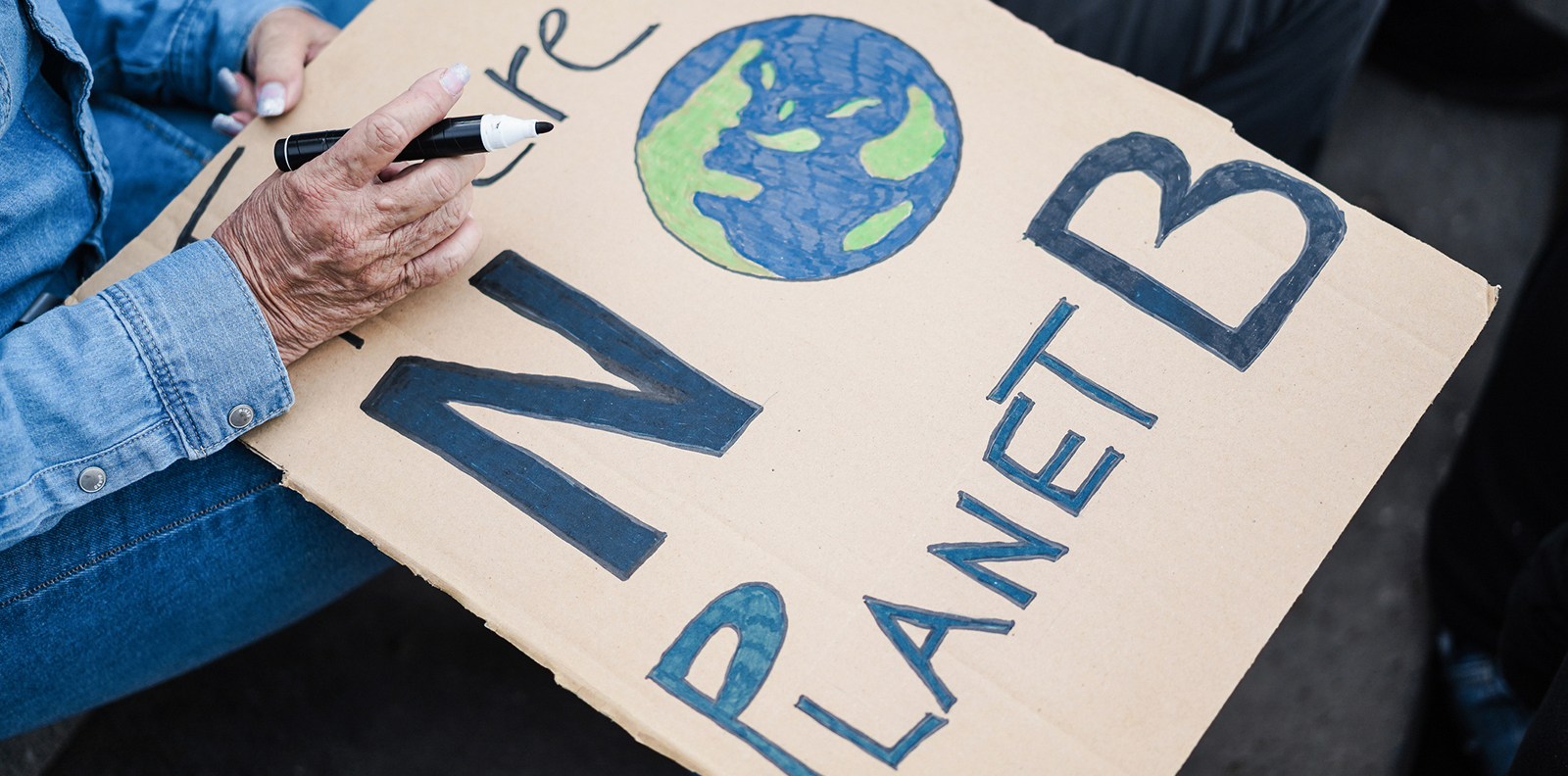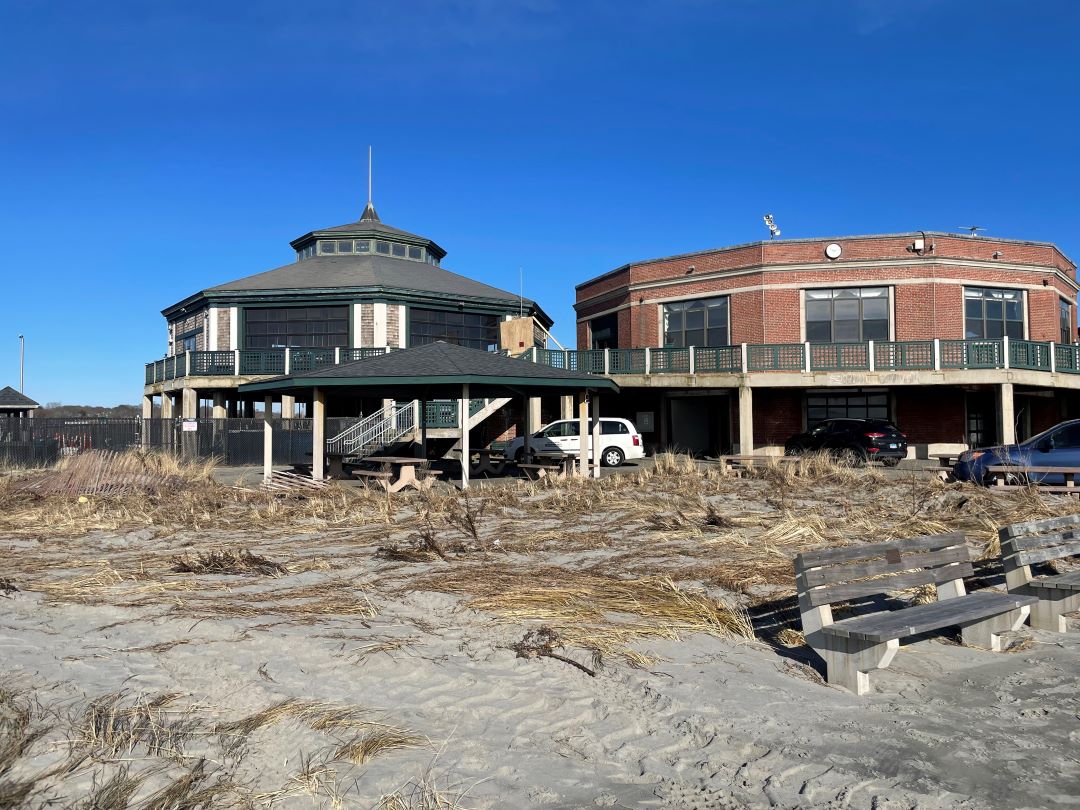CLF Takes Shell to Court Over Waterfront Pollution
July 1, 2018
PROVIDENCE — The Conservation Law Foundation (CLF) is taking on one of biggest corporations in the world and one of the city’s more prominent waterfront businesses to court in the name of climate change.
CLF and Royal Dutch Shell, a British-Dutch oil-and-gas conglomerate and the sixth-largest company on the planet, clashed in federal court on June 26.
In its civil lawsuit, CLF accuses Shell’s Providence Terminal of habitually polluting upper Narragansett Bay and being woefully unprepared to address climate change.
“This is a plant that is grossly out of control,” said Allan Kanner, an attorney for CLF.
CLF argued that the 75-acre marine terminal and ethanol railcar terminal with 25 petroleum storage tanks is leaking petroleum and toxic chemicals into the Providence River through stormwater releases. The facility, which is in a flood zone within the industrial waterfront, is also failing to address sea-level rise, and increased precipitation and damage from future storms, according to the lawsuit.
CLF wants the facility’s runoff system improved and greater fortification of seawalls so that tanks, pipes, and other equipment can withstand extreme weather and sea-level rise.
“What we’re asking for is good environmental engineering practices be applied to this facility,” Kanner said.
Shell claimed that it can’t be held liable for future threats, only current risks. The company noted that the facility has met all state and federal regulations for pollution.
“They are speculating because so much can happen between now and then,” Shell attorney John Guttmann said.
Guttmann said Rhode Island Department of Environmental Management (DEM) permits are only bound to rules in the federal Clean Water Act, which regulates runoff from snow and rain, but not flooding. The court, he said, can’t impose new terms on the permit.
“That’s not a federal court’s job,” Guttmann said.
Both sides referenced the March 2010 floods. Shell claimed that the facility didn’t break any rules because it wasn’t cited by DEM for polluting violations. CLF claimed that DEM only visited the property a week after the floods ended and found that oil booms were unable to contain leaking oil and a sheen of petroleum in the Providence River.
Shell noted that DEM continues to reissue pollution permits for the facility every five years and hasn’t requested any changes. The last permit expired in 2016. The latest permit is open to review and public comment until July 19. Shell suggested that CLF submit comments to DEM rather than take legal action.
The terminal has been open since 1907 and hasn’t suffered major damage from hurricanes in 1938 and 1954, according to Shell.
“The kind of damage CLF is talking about has not occurred in any of these storms,” Guttmann said.
U.S. District Court Chief Judge William Smith asked if CLF should be pleading with DEM and the Environmental Protection Agency (EPA) to make its rules more responsive to stormwater and climate change. He said DEM and the EPA “are already regulating the heck out of” the Shell facility.
Kanner said DEM is overworked and underfunded and therefore moves slowly on reissuing permits. The property hasn’t made upgrades since 2010. Meanwhile, the facility leaks into a public body of water every time it rains, he added.
“Shell hasn’t taken action. That’s why a citizens’ (lawsuit) is needed,” Kanner said.
Shell is seeking a dismissal on the claims related to climate change. Shell argued that court precedent says a company can’t be held liable for future risks. Only current risks and imminent harm are relevant, according to the multinational corporation.
The Shell terminal was formerly owned by Motiva Enterprises. The company was formed in 1998 as a joint venture between Saudi Petroleum and Shell. Motiva operated the Providence Terminal until the business was dissolved in 2017. Shell now has 100 percent ownership of the Providence Terminal.
Smith recommended that the case go forward on the other claims in the lawsuit while he considers a ruling on Shell’s request to dismiss portions of the lawsuit. A decision is expected in the coming months.
CLF has a similar case against an ExxonMobil facility in Everett, Mass. That case is further along than the Shell case but is still in the discovery phase.
Categories
Join the Discussion
View CommentsRecent Comments
Leave a Reply
Your support keeps our reporters on the environmental beat.
Reader support is at the core of our nonprofit news model. Together, we can keep the environment in the headlines.
We use cookies to improve your experience and deliver personalized content. View Cookie Settings




Whatever happened to felony charges for heavy polluters? People are going to get sick from this …